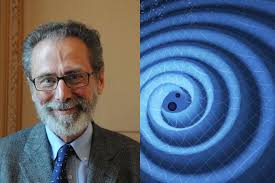Yves Meyer, a French mathematician, was honored with the 2017 Abel Prize, given by Norwegian Academy of Science and Letters, on March 21, 2017 in a ceremony in Oslo, Norway.
- The 77 years old nomad was honored the prestigious award for his contribution in the development of the mathematical theory of wavelets.
- Yves will receive 6 million Norwegian krone (about £600,000) cash award from His Majesty King Harald V at an award ceremony in Oslo on May 23, 2017.
About Wavelet Theory
Wavelet theory is a result of combination of mathematics, information technology and computational science.
- Wavelets are mathematical operations that look similar to the wave motions that appear on a seismograph or a heart-wave monitor.
- Although other scientists had invented wavelets in the early 1980s, Meyer’s work allowed scientists to create unique wavelet transforms that were ideally suited to specific signals.
Application of Wavelet Theory
- In case of mathematics, the wavelets theory is applied in variety of areas ranging from sound to image signals, applied and computational harmonic analysis, data compression, noise reduction, medical imaging, archiving, digital cinema, deconvolution of the Hubble space telescope images, and the recent LIGO detection of gravitational waves created by the collision of two black holes.
- The wavelets can also be combined with another unknown signal (ranging from sound to image signals) to extract information from the original signal.
- Overall, wavelets are particularly useful to discard some extra information, such as low-frequency noise from the universe, while keeping the important signal like the brief blip of gravitational waves from two black holes colliding.
- Wavelets also aid in detecting edges, because they easily pull out spots in data where a signal is changing rapidly, such as in the lines of a fingerprint.
Biography of Yves Meyer
French mathematician Yves Meyer was born on July 19, 1939 in Tunisia. He studied at the Lycee Carnot in Tunis.
- In 1957 he emigrated to France for his undergraduate school. He won the Concours General in Mathematics, and was placed first in the entrance examination for the Ecole Normale Superieure.
- After graduating, he became a math teacher at a small French military school. However, he was not satisfied with the job and so obtained his Ph.D. in 1966, under the
 supervision of Jean-Pierre Kahane.
supervision of Jean-Pierre Kahane. - He became Teaching Assistant at Universite de Strasbourg (1963-1966), a Professor at Universite Paris-Sud (1966-1980), a Professor at Ecole Polytechnique (1980-1986), a Professor at Universite Paris-Dauphine (1985-1995), a Senior Researcher at CNRS (1995-1999), a Professor at Ecole Normale Superieure de Cachan (1999-2003).
- Currently, Yves is a Professor Emeritus at Ecole Normale Superieure de Cachan in France since 2004.
- He is a self described “nomad” who has made several deep contributions to the many subfields for which he has roamed over the past half-century.
Awards & Recognitions
Meyer was an Invited Speaker at the ICM in 1970 in Nice, in 1983 in Warsaw, and in 1990 in Kyoto.
- Yves is a member of the Academie des Sciences since 1993.
- In 1994 he was elected foreign honorary member of the American Academy of Arts and Sciences and became a foreign associate of the US National Academy of Sciences in 2014.
- In 2010, Yves Meyer was awarded the Carl Friedrich Gauss Prize.
- In 2012 he became a fellow of the American Mathematical Society.
About Abel Prize
The Abel Prize is awarded by the Norwegian Academy of Science and Letters since 2003. The Abel Prize and associated events are funded by the Norwegian Government.
- The Abel Prize recognizes contributions of extraordinary depth and influence to the mathematical sciences. It carries a cash award of 6 million NOK (about 675,000 Euro or 715,000 USD).
- The choice of laureate is based on the recommendation of the Abel Committee, which is composed of five internationally recognized mathematicians. The members of the current committee are: John Rognes (chair), Marta Sanz-Solé, Luigi Ambrosio, Marie-France Vignéras and Ben J. Green.
- In 2016, the Abel Prize was won by Briton Andrew Wiles for his work on solving Fermat’s Last Theorem.





